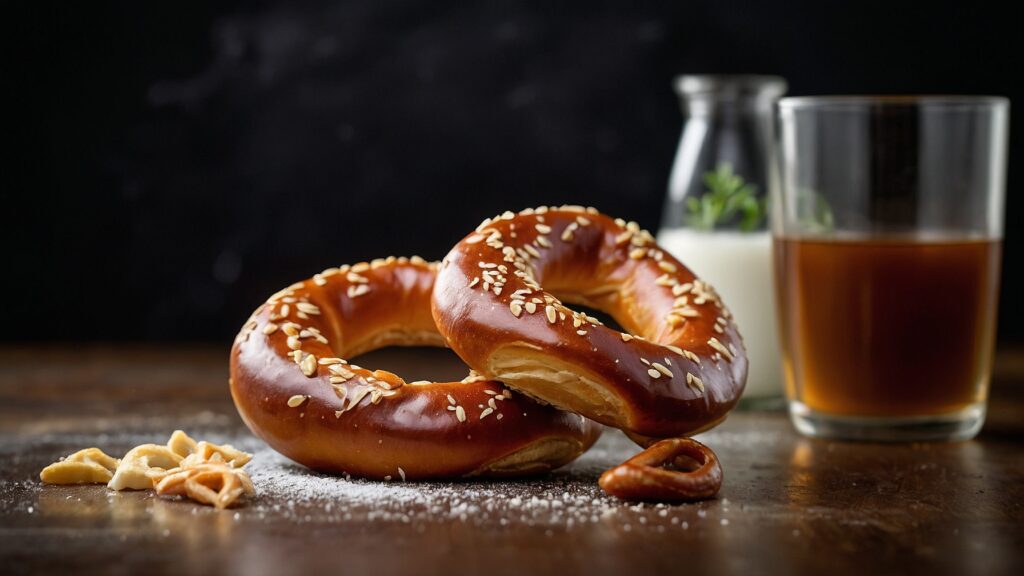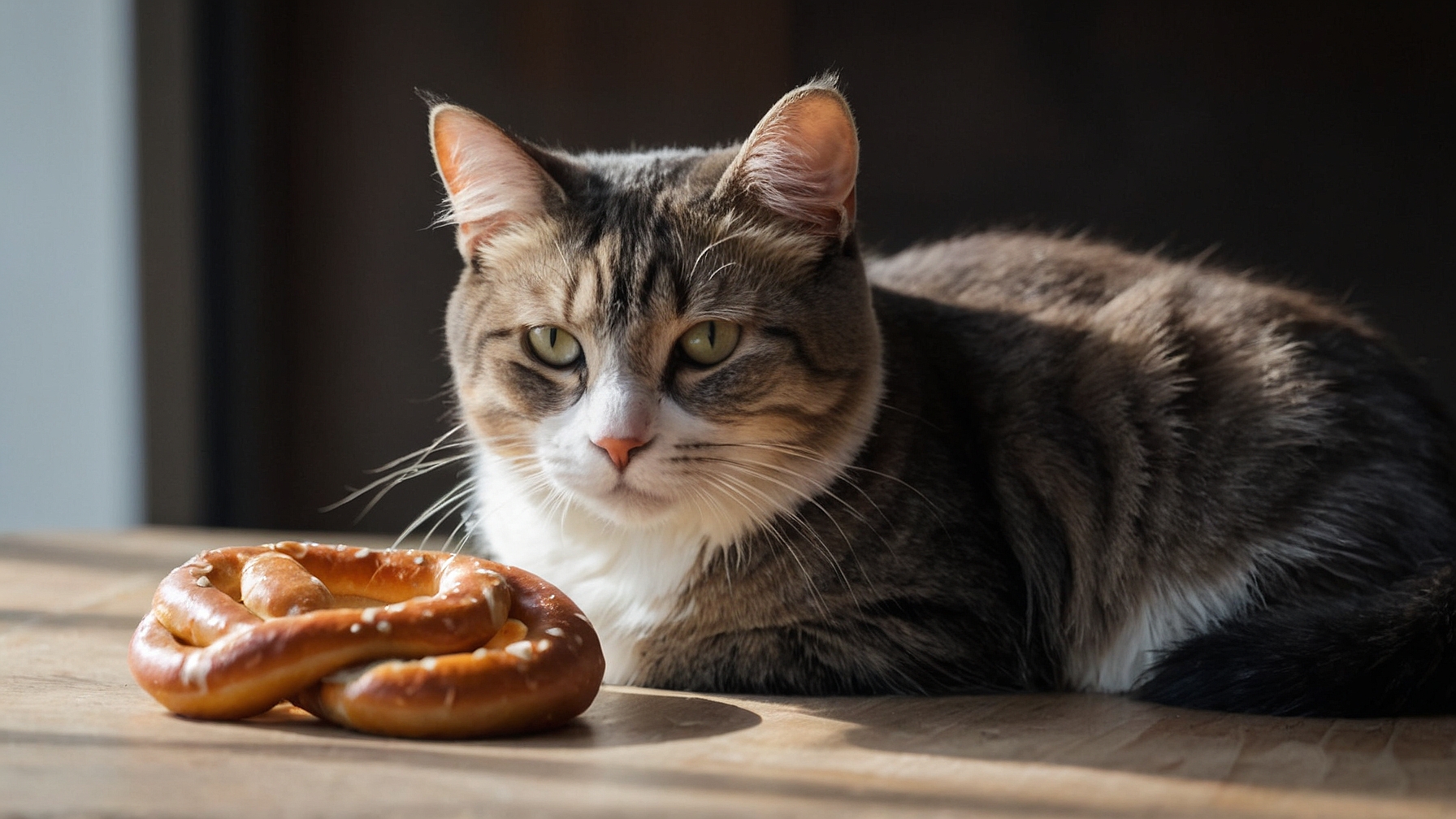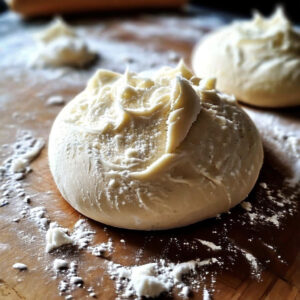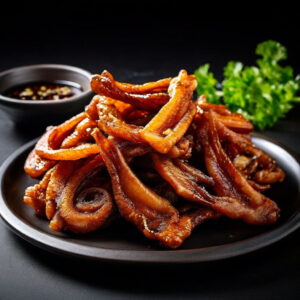Pretzels are a popular snack food enjoyed by many people around the world. With their unique twisted shape, crispy texture, and salty flavor, they can be tempting to share with our feline friends. However, the question arises: can cats eat pretzels with salt? While it may seem like a harmless treat, the answer is not as straightforward as one might think.
In this comprehensive guide, we will delve into the intricacies of cats and their dietary needs, exploring the potential risks and benefits of feeding them pretzels with salt. We will examine the nutritional composition of pretzels, the effects of salt on feline health, and provide valuable insights into healthier snack alternatives that are safe for your furry companion.
Table of Contents
Can Cats Eat Pretzels With Salt? Is It Safe For Cats To Eat Salty Foods?
Salt is a crucial component of our diets, but for cats, excessive salt intake can pose significant health risks. Felines have a much lower tolerance for salt compared to humans, and consuming too much can lead to various health issues.
One of the primary concerns with high salt consumption in cats is the development of hypertension, or high blood pressure. Just like in humans, excessive salt can cause an increase in blood pressure, which can strain the heart and potentially lead to heart disease, kidney damage, and other complications.
Additionally, a diet high in salt can contribute to dehydration in cats. Cats are naturally prone to dehydration due to their low thirst drive and concentrated urine. Consuming salty foods can exacerbate this issue, leading to potential kidney problems and urinary tract issues.
According to the American Society for the Prevention of Cruelty to Animals (ASPCA), the maximum recommended salt intake for cats is around 21 milligrams per day for every pound of body weight. To put this into perspective, a single salted pretzel can contain anywhere from 200 to 500 milligrams of sodium, far exceeding the daily recommended amount for a typical house cat.
| Cat’s Weight | Maximum Daily Salt Intake |
|---|---|
| 5 lbs | 105 mg |
| 10 lbs | 210 mg |
| 15 lbs | 315 mg |
As illustrated in the table above, even a small amount of salty pretzels can quickly surpass a cat’s daily salt requirements, potentially leading to adverse health effects.
Nutritional Composition of Pretzels

To better understand the implications of feeding pretzels to cats, it’s essential to examine their nutritional composition. Pretzels are primarily made from the following ingredients:
- Wheat flour
- Yeast
- Salt
- Water
- Occasionally, additional ingredients like butter, sugar, or flavorings
While the exact nutritional values may vary depending on the brand and type of pretzel, here’s an approximate breakdown of a typical salted pretzel:
| Nutrient | Amount (per serving, approx. 10 pretzels) |
|---|---|
| Calories | 230 |
| Total Carbs | 46g |
| Protein | 5g |
| Total Fat | 2g |
| Sodium | 850mg |
As evident from the table, pretzels are high in carbohydrates and sodium, with a relatively low protein content. This nutritional profile can be problematic for cats, who are obligate carnivores and have specific dietary requirements.
Cats require a diet rich in animal-based proteins, with moderate amounts of fats and minimal carbohydrates. The high carbohydrate and low protein content of pretzels can lead to digestive issues and potential weight gain in cats.
Moreover, the excessive salt content in pretzels is a significant concern. As mentioned earlier, the recommended daily salt intake for cats is much lower than the amount found in a single serving of pretzels.
Potential Effects of Eating Pretzels on Cats
If a cat consumes pretzels with salt, various adverse effects may occur, ranging from mild discomfort to more severe health complications. Here are some potential consequences:
- Digestive Issues: Cats lack the necessary enzymes to effectively digest large amounts of carbohydrates found in pretzels. This can lead to digestive upset, including vomiting, diarrhea, and abdominal discomfort.
- Increased Thirst and Urination: The high salt content in pretzels can cause excessive thirst and frequent urination in cats, potentially leading to dehydration if water intake is not increased accordingly.
- Pancreatitis Risk: The high-fat content in some pretzel varieties can increase the risk of pancreatitis, a potentially life-threatening condition characterized by inflammation of the pancreas.
- Obesity and Weight Gain: Pretzels are calorie-dense and offer minimal nutritional value, contributing to potential weight gain and obesity in cats if consumed regularly.
- Lack of Essential Nutrients: Pretzels do not provide the necessary nutrients that cats require for optimal health, such as animal-based proteins, vitamins, and minerals.
It’s important to note that the severity of these effects can vary depending on the amount of pretzels consumed, the size and breed of the cat, and any underlying health conditions. However, it’s generally advisable to avoid feeding cats pretzels with salt, as the risks often outweigh any potential benefits.
Healthier Snack Alternatives for Cats
While pretzels with salt may be off-limits for feline friends, there are many healthier and safer snack options available that can satisfy a cat’s cravings while providing essential nutrients:
- Low-Sodium Meat Options: Cats are obligate carnivores, and their primary source of nutrition should come from animal-based proteins. Lean meats like cooked chicken, turkey, or fish (without added salt or spices) can make excellent snacks for cats.
- Veterinarian-Approved Cat Treats: There are numerous cat treats available on the market specifically formulated to meet the nutritional needs of cats. Look for treats that are low in carbohydrates, free from artificial additives, and have a high protein content.
- Fruits and Vegetables: While not a primary source of nutrition, some fruits and vegetables can be offered as occasional treats. Options like banana, blueberries, and carrots (in moderation) can provide essential vitamins and minerals.
- Unsalted Nuts: Nuts like almonds, cashews, and peanuts (unsalted and in moderation) can offer a crunchy texture and a good source of healthy fats for cats.
- Safe Human Foods: Certain human foods, such as cooked eggs, plain yogurt, and small amounts of cooked lean meats, can be safely incorporated into a cat’s diet as occasional treats.
It’s always best to consult with a veterinarian before introducing new foods or treats to your cat’s diet. They can provide personalized recommendations based on your cat’s age, breed, and overall health condition.
Can Cats Have Pretzels Without Salt?
Given the potential risks associated with salted pretzels, some cat owners may wonder if pretzels without added salt could be a safer option. While unsalted pretzels may eliminate the risk of excessive salt intake, they still pose other concerns for feline health.
Firstly, pretzels, even without salt, are primarily composed of wheat flour and yeast, both of which are carbohydrate sources. As mentioned earlier, cats are not well-equipped to digest large amounts of carbohydrates, which can lead to digestive issues and potential weight gain.
Additionally, while unsalted pretzels may be lower in sodium, they still lack the essential nutrients that cats require for optimal health, such as animal-based proteins, vitamins, and minerals.
Therefore, while unsalted pretzels may be slightly better than their salted counterparts, it is generally advisable to avoid feeding pretzels to cats altogether. There are many other healthier and more nutritionally appropriate snack options available that can better cater to a cat’s dietary needs.
Conclusion
In conclusion, the answer to the question “can cats eat pretzels with salt” is a resounding no. The high salt content, carbohydrate-rich composition, and lack of essential nutrients make pretzels an unsuitable and potentially harmful snack for feline companions.
Consuming pretzels with salt can lead to various health issues in cats, including dehydration, digestive problems, pancreatitis, obesity, and even kidney damage. It is crucial to prioritize a cat’s specific dietary requirements and provide them with a balanced, protein-rich diet supplemented with appropriate treats and snacks.
Instead of pretzels, opt for healthier alternatives such as low-sodium meats, veterinarian-approved cat treats, fruits and vegetables in moderation, unsalted nuts, and safe human foods like cooked eggs or lean meats. Always consult with a veterinarian before introducing new foods to your cat’s diet, as they can provide personalized recommendations tailored to your pet’s individual needs.
Remember, our feline friends deserve the best possible care, and that includes ensuring their dietary needs are met with nutritious and safe options. By making informed choices and providing a balanced diet, you can help your furry companion thrive and enjoy a long, healthy life.
FAQs
Can cats eat salted potato chips?
No, salted potato chips are not recommended for cats due to their high salt and fat content, as well as the potential presence of additives and seasonings that can be harmful.
Is it okay to give my cat a small piece of pretzel as a treat?
It’s best to avoid giving cats any pretzels, even in small amounts, as the salt and carbohydrate content can still pose risks to their health. Opt for healthier, cat-friendly treats instead.
Can kittens eat pretzels?
No, kittens should not be given pretzels or any other human snacks. Their developing bodies require a carefully balanced diet specifically formulated for their growth and development.
What should I do if my cat accidentally eats a pretzel?
If your cat has accidentally consumed a small amount of pretzel, monitor them closely for any signs of digestive upset or discomfort. Provide plenty of fresh water and contact your veterinarian if you have any concerns.
Are there any low-sodium pretzel options that are safer for cats?
While there may be some low-sodium pretzel varieties available, it’s still not recommended to feed them to cats. Even unsalted pretzels lack essential nutrients and can contribute to digestive issues and weight gain.
Can cats eat other salty human snacks like chips or crackers?
No, it’s generally advisable to avoid feeding cats any salty human snacks, as they can lead to dehydration, sodium toxicity, and other health problems. Stick to cat-safe treats and a balanced diet.
How can I satisfy my cat’s crunchy snack cravings safely?
If your cat enjoys crunchy textures, consider offering unsalted, plain dry cat food or treats specifically formulated for cats. You can also try small amounts of cooked, unsalted popcorn or unsalted nuts like peanuts or almonds (in moderation).
My cat loves the smell of pretzels. Can I let them lick or nibble on one?
It’s best not to let your cat lick or nibble on pretzels, even if they seem interested. The salt and carbohydrate content can still be harmful, and it’s better to avoid the temptation altogether.
Remember, if you have any specific concerns or questions about your cat’s diet and nutrition, it’s always best to consult with a veterinarian. They can provide personalized advice and guidance to ensure your feline friend’s health and well-being.




